There are many faces to a revolt. When I look at the protests in Iran, which began with Iranian Kurdish Mahsa Amini’s killing by morality police for not properly wearing the hijab and quickly ‘scale shifted’, as social movement scholar Sydney Tarrow[1] would coin it, I see both hope and brutality. Perseverance and despair. Since the beginning of the protests, more than 300 people have been killed, 14,000 people arrested. The UN called for further investigation of this ‘fully fledged human rights crisis.’ The Islamic Republic responded to the UN’s resolution as ‘useless.’
Another face of current Iranian politics is the factionalization within the diaspora.[2] As the situation at home got more heated, the conversation among the powerful figures of the diaspora got more tense. Certain academics and journalists are accused of supporting the Iranian regime. Journalists Negar Mortazavi and Farnaz Fassihi are just two examples who received continuous and coordinated online harassment by trolls, even death threats, for their commentaries, which were interpreted as apologism for the Iranian regime. And then, there is the think tank based in the US, the National Iranian American Council (NIAC), which played a crucial role during Obama’s Iran nuclear deal, – Joint Comprehensive Plan of Action (JCPOA). NIAC has long been seen as a lobbying machine for the Iranian regime, not only by many in the diaspora but also by hawkish figures within the Republican Party, and also people like Michael Rubin. Its funding and relations within the White House have been questioned. NIAC denies allegations that it is led by the Iranian regime. I cannot provide investigative reporting as to how NIAC is funded and how it operates. What I'd like to discuss is the limits of drowning out other voices, particularly within the diaspora.
I fully sympathise with the anger directed at regime apologism. I do not find it either sanctimonious or meaningless. I have been angry at certain NGO’s, academics, commentators, and journalists whom I view as having helped laud Erdogan’s regime as the model that managed to marry democracy and Islamism. I have been angry at the EU. I have been angry at the European Court of Human Rights for not doing enough, for being too slow regarding the application of unfair trials in Turkey. I have stopped talking to certain colleagues. I have declined to participate in panels where I believe the other speaker is an Erdogan apologist. There were incidents, unsurprisingly, in which people refrained from talking to me or participating in the same event with me because of my writings and reports as a journalist would jeopardise their well-being at home in Turkey. I have also been cancelled by the intellectuals of Turkey’s Kurdish movement for not doing enough. Hence, the plague of cancelling each other out within the Iranian diaspora sounds very familiar, very ‘home’ to me.
This week, I wanted to support the Iranian football team in their match against the US. But would that mean I support the Iranian regime? And I should stop saying Iranian regime now. I should say the state of Islamic Republic or IR. Both my husband and I became teary-eyed after watching Iranian football players not singing the national anthem at their first match at the World Cup in Qatar. We took the gesture as support to the Jin, Jiyan, Azadi (Women, Life, Freedom) protestors. However, the Iranian diaspora was not as ecstatic as we were. They thought the gesture was too little, too late. It’s a minefield where anywhere anyone stand could blow up anytime. But this kind of minefield is not special to Iran or Turkey. Journalist and thinker Anne Applebaum’s book titled ‘Twilight of Democracy: The Failure of Politics and The Parting of Friends’[3] tells a similar story about Poland.
That faraway New Year’s Party in Warsaw
Applebaum opens her book with a vignette of a New Year’s party that she and her husband threw in December 1999. The guests were ‘journalists from London and Moscow, a few junior diplomats based in Warsaw, two friends who flew over from New York. But most of them were Poles, friends of ours and colleagues of my husband, who was then a deputy in centre-right Polish government.’ Applebaum defines the political spectrum among the guests of the party as ‘what the Poles call as the right – the conservatives, the anti-Communists. But at that moment in history, you might have called most of us liberals. Free-market liberals, classical liberals, and maybe Thatcherites.’ But, she says, all of them ‘believed in democracy, in the rule of law, in checks and balances, and in a Poland that was a member of NATO and on its way to joining the EU, a Poland that was an integrated part of modern Europe.’ The party that lasted all night is a faraway memory for Applebaum now.
‘Nearly two decades later, I would now cross the street to avoid some of the people who were at my New Year’s Eve party. They, in turn, would not only refuse to enter my house, but they would also be embarrassed to admit they had ever been there. In fact, about half the people who were at that party would no longer speak to the other half. The estrangements are political, not personal. Poland is now one of the most polarized societies in Europe, and we found ourselves on opposite sides of a profound dive, one that runs through not only what used to be the Polish right but also the old Hungarian right, the Spanish right, the French right, the Italian right, and, with some differences, the British right, and the American right, too.’
Everyday revolutionary life
As seen, everyone who attempts to voice an opinion on a heated debate – is there an unheated debate nowadays? – will enjoy being cancelled or cancel for more than 15 minutes. One needs to embrace this fact and take the risk.
However, there must be a limit to cancelling and anger when living far away from home, especially when ‘home’ is burning with turmoil, blood, and sweat. As ‘exited voices’ in the diaspora we should at least acknowledge that taking a stand against an authoritarian regime is a complex issue. Not only on moral grounds but also on practicality. We should acknowledge that ‘everyday life’, as Iranian scholar Asef Bayat[1] would say, still continues in Iran. The means one takes to suffocate a regime would suffocate everyday life as well. We should acknowledge that asking for the total isolation of an authoritarian regime to the detriment of our compatriots is easier when we are not part of everyday life at home. Another danger is to become as authoritarian as the regimes we fight against. Cancelling all the voices that dare to bring up a different layers and perspectives and favouring a homogeneous pool of thoughts… Isn’t this a trademark of authoritarian leaders? Another excerpt from Applebaum’s book fits here:
‘An authoritarian disposition, one that favors homogeneity and order, can be present without necessarily manifesting itself; its opposite, a ‘libertarian’ predisposition, one that favors diversity and difference, can be silently present too […] Authoritarianism appeals, simply to people who cannot tolerate complexity: there is nothing intrinsically left-wing or right-wing.’
Bosphorus is an apt analogy
One of my closest friends, Hakan Altınay is in jail in Istanbul on bogus charges of attempting to overthrow the Turkish government by helping to organize the Gezi protests of 2013. Hakan is the director of European School of Politics, the president of Global Civics Academy and a Yale World Fellows alumnus. He promoted democracy and human rights all his life. Last month, Hakan wrote a piece from his prison cell by the invitation of the Economist asking the EU and the European community to re-engage in dialogue with Turkey.
‘There are developments not easily subsumed into a narrative about authoritarian Turkey: the Istanbul Art Biennial, which opened in September and may draw more than half a million visitors; a proliferation of independent and resilient web-based news providers; environmental struggles across the country to preserve forests, olive groves and rivers; multiple civic efforts, such as Teachers Network and Teachers Academy Foundation, to aid public-sector teachers; and thousands of pro-bono lawyers determined to ensure that no one faces prosecution alone and unassisted.
The Bosphorus offers an apt analogy: a narrow but busy seaway with 90-degree turns that captains have to navigate between the Black Sea and the Mediterranean. The visible top current flows from north to south, but there is also a lower current with heavier, saltier Mediterranean water flowing from south to north. Unless the captains are aware of both, the Bosphorus cannot be successfully navigated. The same goes for relations between Europe and Turkey. We need a good deal of attention and curiosity to discern dynamics which seem contradictory at times and build rapport.’
Not all of us can be as magnanimous as my friend Hakan Altınay, but at least we can try. Try to acknowledge the complexity of voices and remember the different undercurrents that make places beautiful rather than looking at each other askance. Please, please do not interpret this letter as virtue signalling. As I mentioned above, I am a petty canceller myself who is attempting to get out of my own status quo bias. Let’s just talk. Shall we?
[1] Asef Bayat, Revolutionary life : the everyday of the Arab Spring (Cambridge, Massachusetts: Harvard University Press, 2021).
[1] Sidney G. Tarrow, The new transnational activism, Cambridge studies in contentious politics, (New York ; Cambridge: Cambridge University Press, 2005).
[2] Mehdi Bozorgmehr et al., The Iranian Diaspora : Challenges, Negotiations, and Transformations (Austin: University of Texas Press, 2021).
[3] Anne Applebaum, Twilight of democracy : the failure of politics and the parting of friends (London: Allen Lane, 2020).




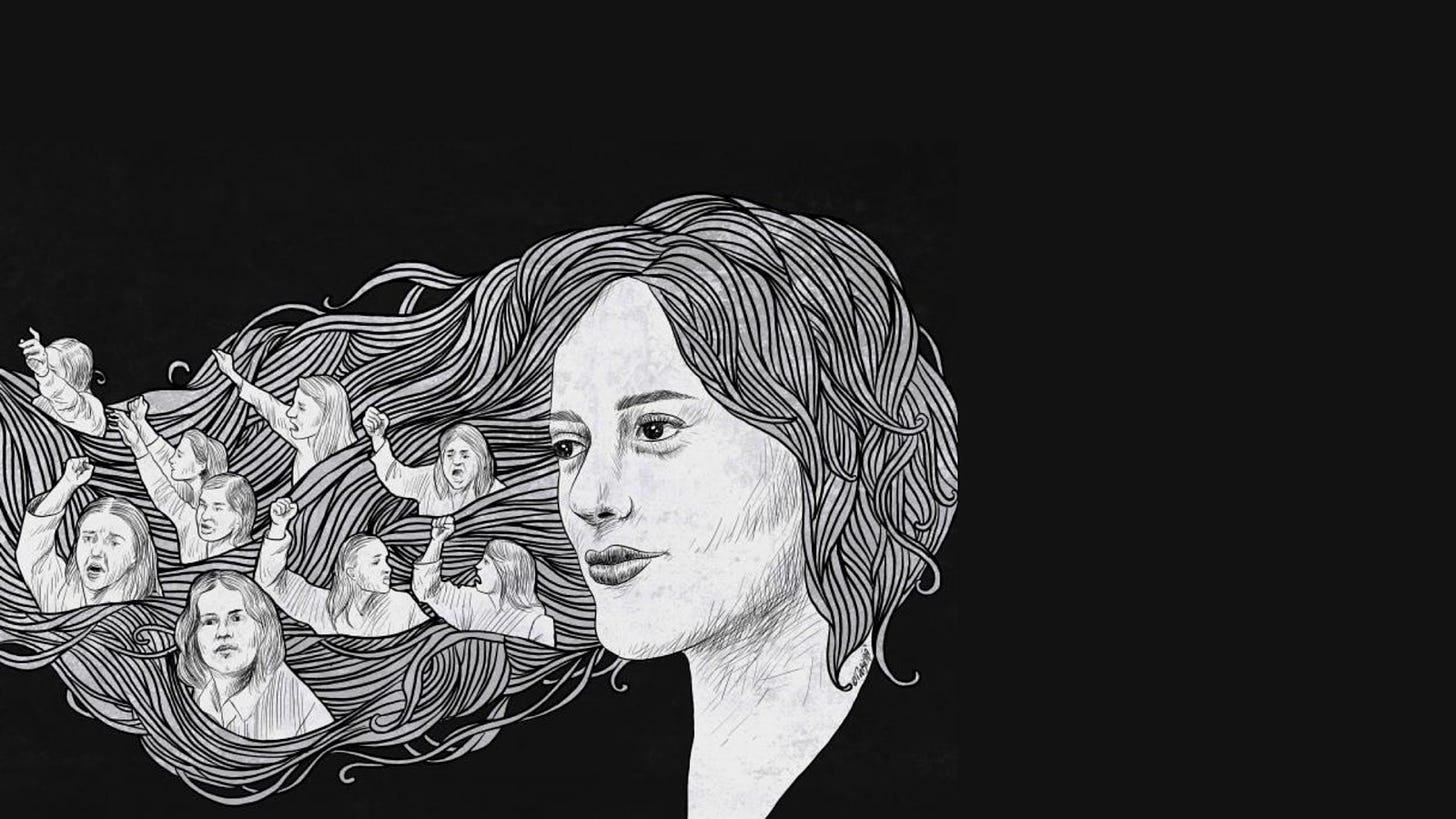

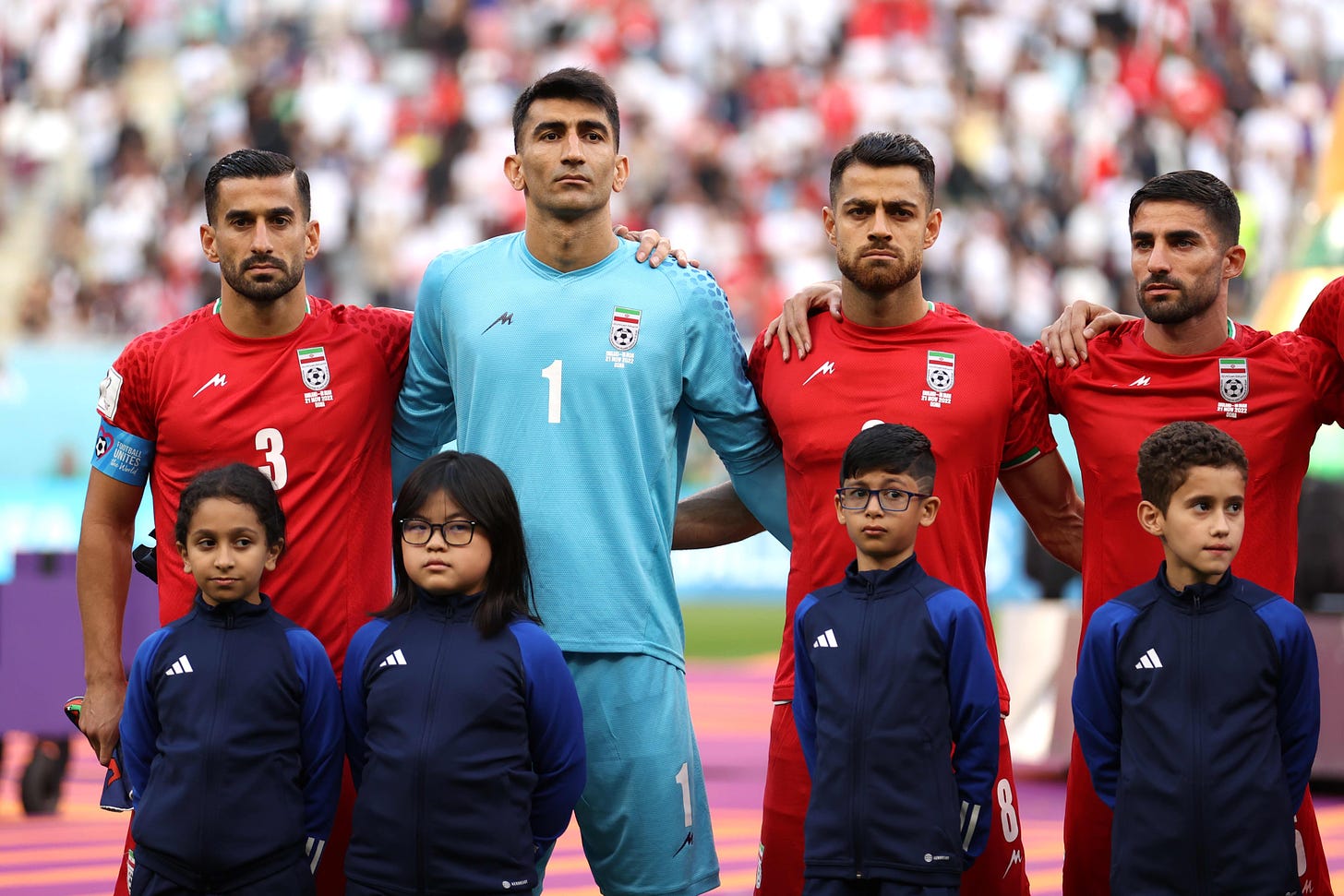
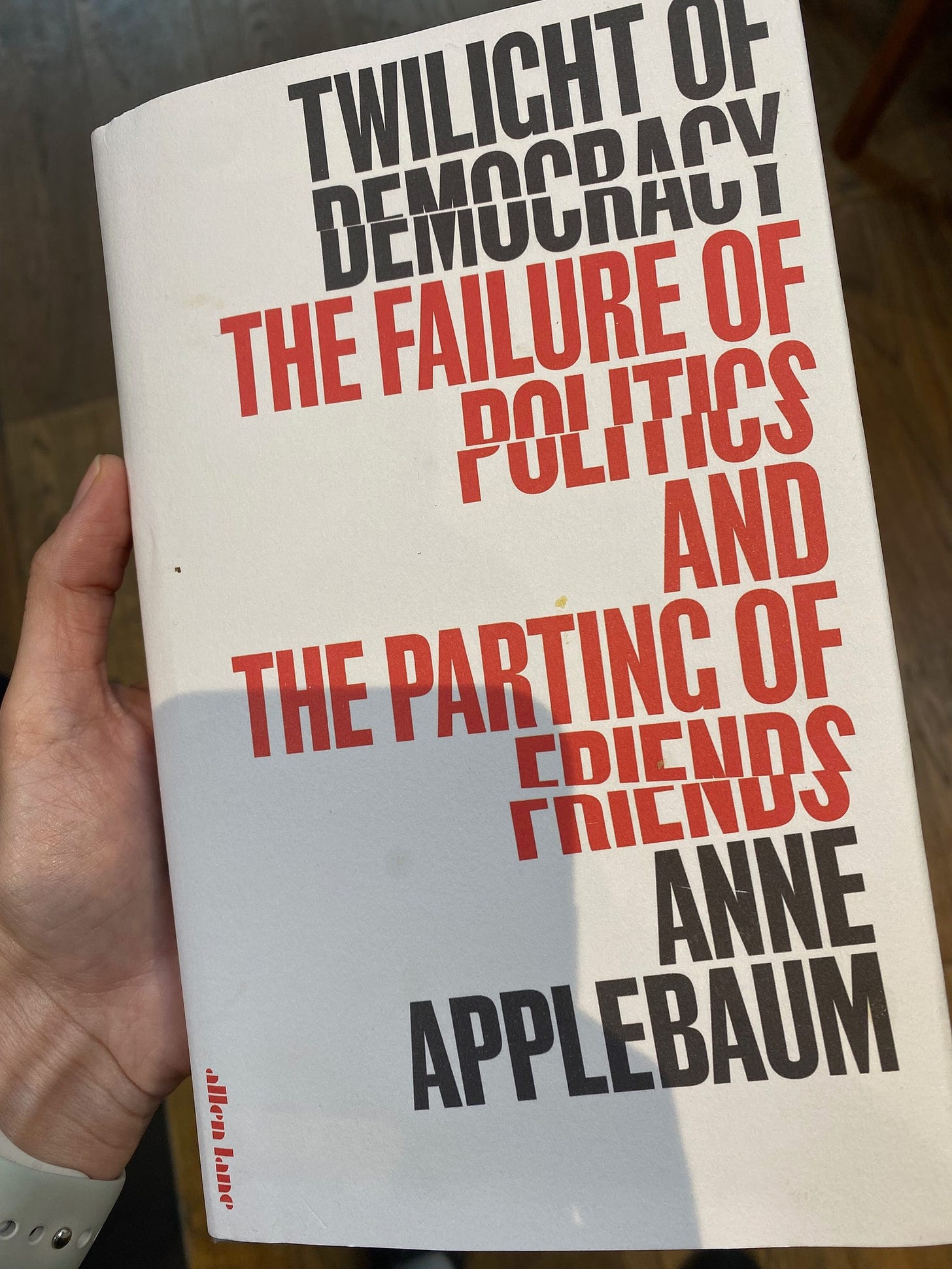
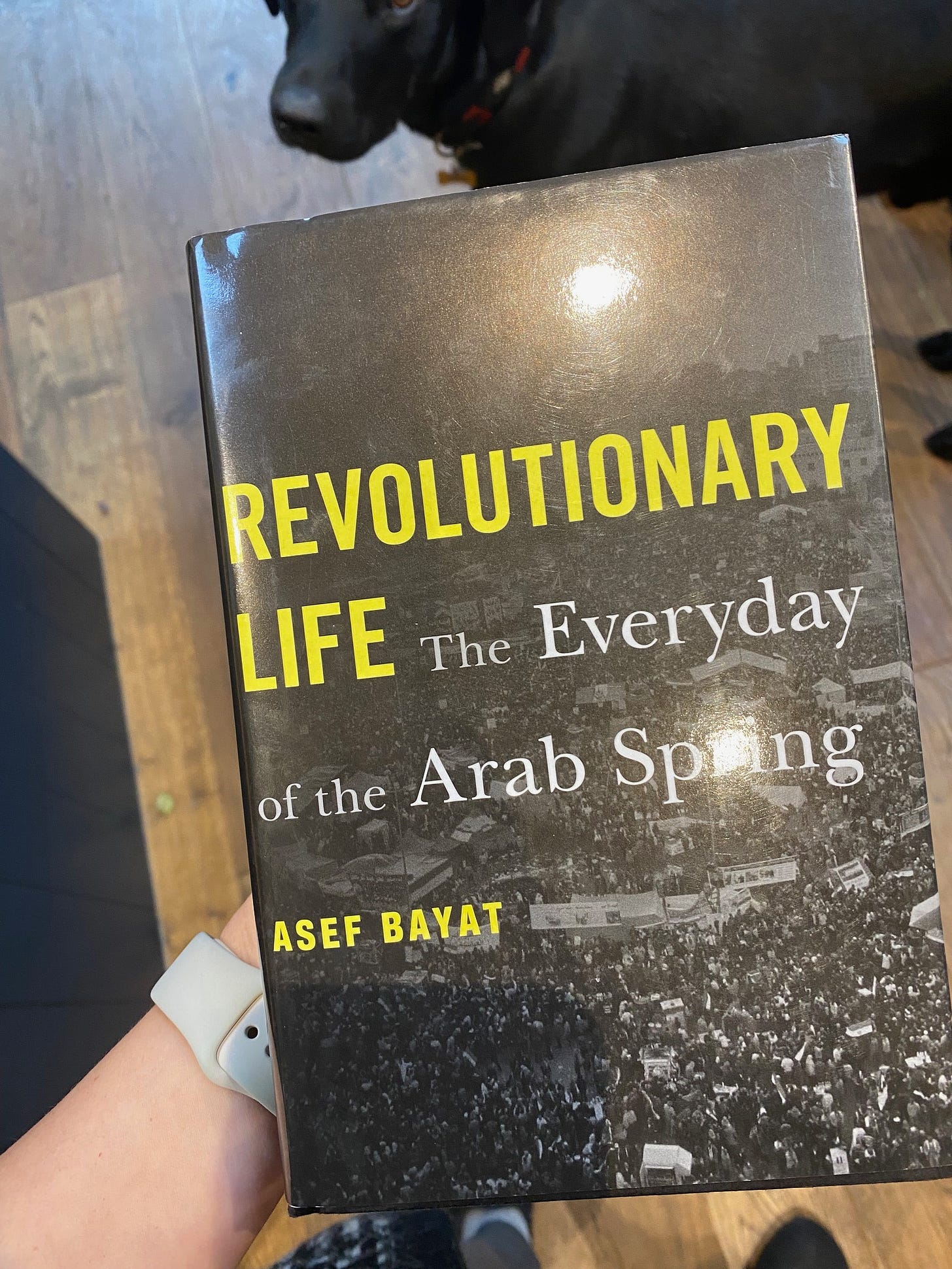
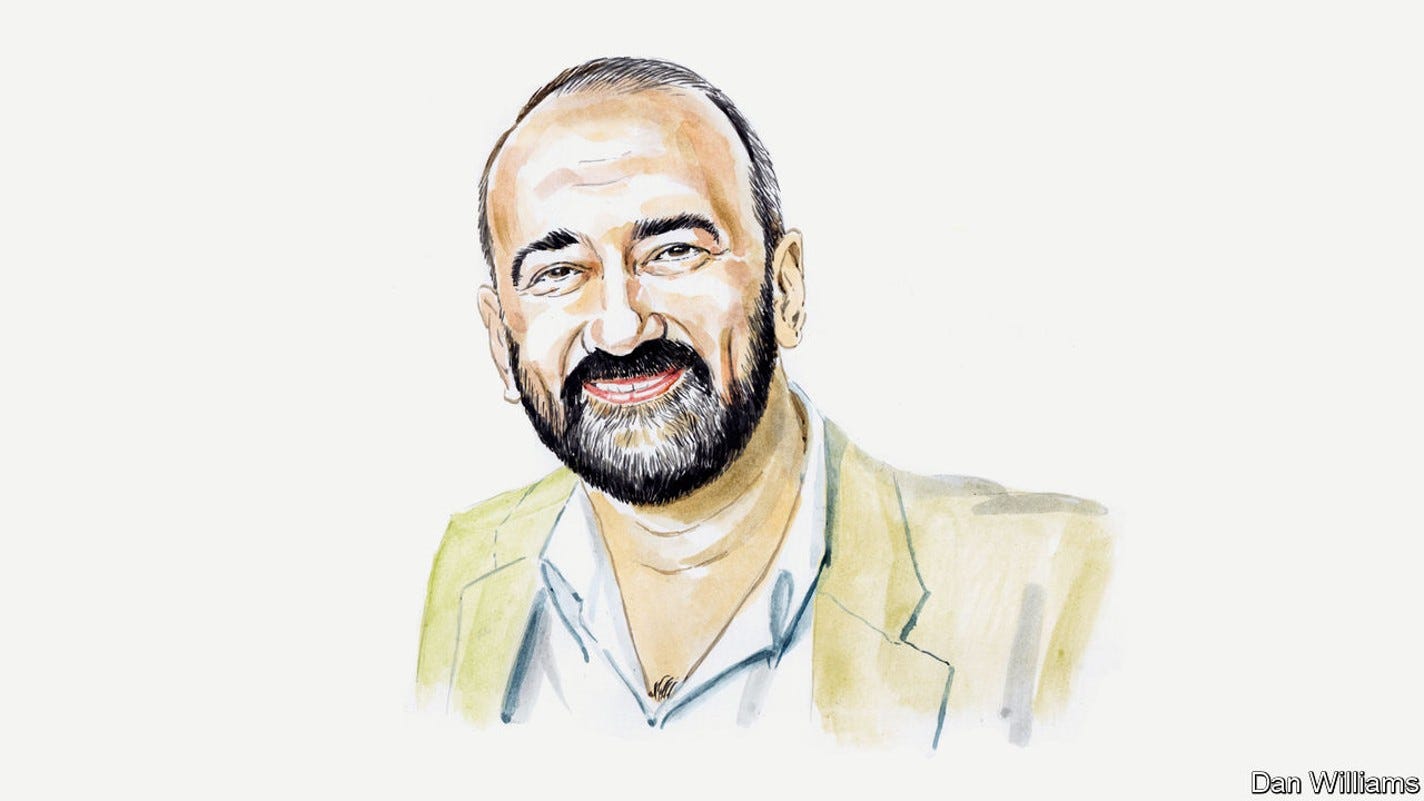
Thanks Himanshu. I believe nowadays we all have parted with ‘some’ friends. Talk to you soon below the next letter. xx
Thank you for the article. It was an interesting analysis of cancelling culture. The Bosphorus analogy is so apt, I will definitely be contemplating more on it. I can relate to the incident of Applebaum's New Year's party in my personal life. I look forward to your other articles.